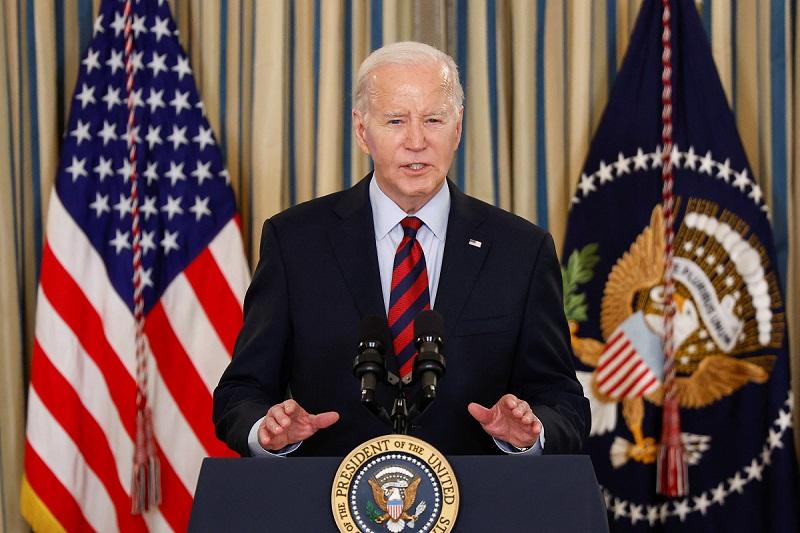Biden speaks to China”s Xi on Taiwan, Ukraine, Philippines
By NANDITA BOSE and DAVID LAWDER, Reuters Published April 3, 2024 12:12am Updated April 3, 2024 12:48am WASHINGTON — US President Joe Biden and Chinese President Xi Jinping held their first direct talks on Tuesday since meeting in November, with Biden looking to keep tensions from mounting ahead of Taiwan’s presidential inauguration in May. Biden used […]


By NANDITA BOSE and DAVID LAWDER, Reuters
WASHINGTON — US President Joe Biden and Chinese President Xi Jinping held their first direct talks on Tuesday since meeting in November, with Biden looking to keep tensions from mounting ahead of Taiwan’s presidential inauguration in May.
Biden used the call to emphasize “the importance of maintaining peace and stability across the Taiwan Strait and the rule of law and freedom of navigation in the South China Sea,” the White House said in a statement.
Biden and Xi agreed in November to reopen military communications and cooperate to curb fentanyl production. They had not spoken on the phone since July 2022. After November’s meeting, Biden told reporters he had not changed his view that Xi is a dictator, a comment that irked China.
China regards Taiwan, a self-governed island with democratic elections, as part of its territory and recently dropped language about a “peaceful reunification” from its budget. Taiwan strongly objects to China’s sovereignty claims and says only the island’s people can decide their future.
Taiwan’s current Vice President Lai Ching-te, who Beijing views a separatist, won the presidency in January and Beijing has increased pressure on Taiwan ahead of the inauguration in May.
Biden and Xi also discussed concerns over China’s support for Russia’s war against Ukraine, its economic trade practices, human rights abuses in Xinjiang and the denuclearization of the Korean peninsula, the White House said.
The US president also warned Beijing over escalating confrontations in the South China Sea, which China claims almost entirely, in conflict with international law.
A senior administration official had said earlier that Biden would express concern over “destabilizing PRC actions in the South China Sea, including the dangerous recent action of the PRC Coast Guard against routine Philippine maritime operations.”
Rebounding relations
Biden and Xi have continued their talks looking to smooth over a rocky period in relations that took a turn for the worse after a suspected Chinese surveillance balloon transited the United States and was shot down by a US fighter jet last year.
Relations have shown signs of improvement in recent months as both sides took steps to re-establish channels of communication after ties between the two global superpowers sank to their lowest levels in decades.
“The two leaders welcomed ongoing efforts to maintain open channels of communication and responsibly manage the relationship through high-level diplomacy and working-level consultations in the weeks and months ahead…,” the White House said.
Chinese Foreign Minister Wang Yi met US National Security Adviser Jake Sullivan in January followed by a February meeting with US Secretary of State Antony Blinken. Treasury Secretary Janet Yellen will travel to China in April.
Biden and Xi also talked about ways to manage competition, avoid conflict and keep lines of communication open.
“Intense competition requires intense diplomacy to manage tensions, address misperceptions and prevent unintended conflict. And this call is one way to do that,” the senior US administration official said.
The Biden administration has imposed bans on the sale of certain technologies to Chinese companies, citing national security risks. China has accused Washington of “weaponizing” economic and trade issues.
On Tuesday’s call, Biden said the US “will continue to take necessary actions to prevent advanced US technologies from being used to undermine our national security, without unduly limiting trade and investment,” the White House said.
The two leaders also discussed a number of areas where US and Chinese interests align, including counternarcotics efforts, risk and safety issues related to artificial intelligence, resumption of military-to-military communications and efforts to fight climate change. — Reuters














